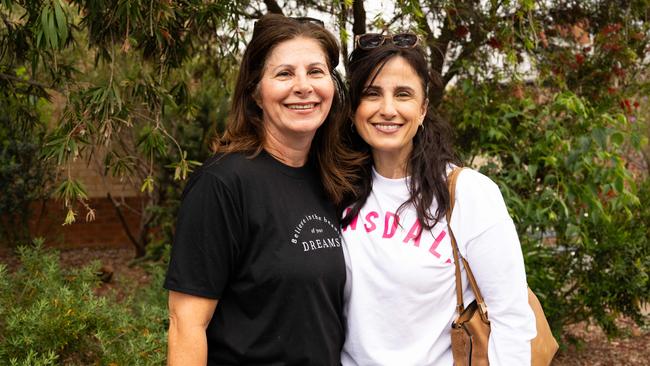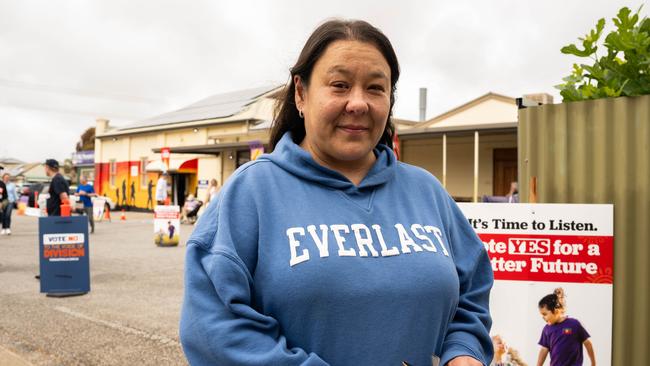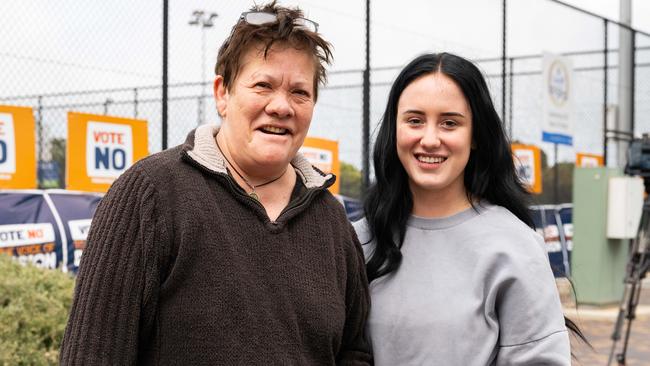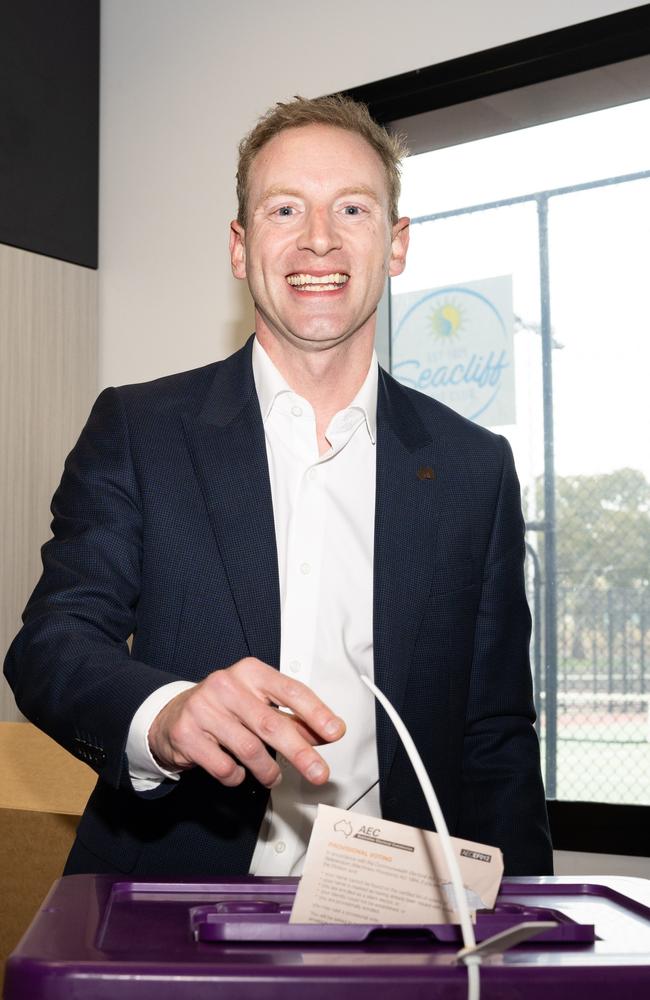South Australian voters reject the Voice to Parliament
The referendum numbers for the crucial state of South Australia have delivered a blowout win for the No camp.
Breaking News
Don't miss out on the headlines from Breaking News. Followed categories will be added to My News.
South Australia has delivered a blowout win for the No campaign, part of a massive country-wide wave of rejection that killed off the proposed Voice to Parliament in just the first hour of counting.
With 479 the state’s 687 booths counted, the No camp is leading with 61.5 per cent of the vote versus 38.5 per cent for Yes.
An exit poll conducted by NCA NewsWire in Adelaide on Saturday pointed to a clear No win.
A total of 114 voters across the Adelaide electorate of Boothby were asked how they voted as they left four polling booths. 58 registered a No vote while 56 went for Yes.

The tight numbers deliver a 50.8 per cent No majority versus 49.2 per cent for Yes.
South Australia was a key target for both the Yes and No campaigns as changing the Constitution requires two majorities – a majority of voters plus four out of Australia’s six states.
South Australia’s comparatively small population but equal weight as a state made its votes particularly valuable.
The tight numbers spelled trouble for Yes because Boothby is a Labor electorate, currently represented by Louise-Miller Frost.

The Yes campaign needed to run up its vote totals in Labor territory to balance out conservative electorates that lean more heavily towards No.
For Helen Carpentieri, 60, voting at the Seacliff Uniting Church, uncertainty surrounding how the Voice would work pushed her to a No vote.
“I don’t think much has been explained,” she said.
“We don’t know what it would do.”
Madellen Dawson, voting at the Plympton-Glenelg RSL, said other issues such as cost-of-living pressures were “much more important”.


“It (the Voice) will create a division that is unnecessary,” she said.
“More of a rift than unity”.
Leigh Harris, 59, said she believed Indigenous elders opposed the Voice after she lodged her No vote at the Kauri Community and Sports Centre.
“From anything I’ve watched, the elders aren’t wanting it,” she said.
But while the exit poll suggests a very slim win for No, the sample size is small and Yes voters could deliver a win for the Voice in this densely populated part of the state.
Trans voter Xavier Bament, who is transitioning to become man, said his own experiences pushed him to a Yes vote.

“If the Australian government thought to have a voice for trans issues, would I vote yes or no? I would vote yes,” the 19-year-old said.
“It’s the bare minimum.”
At St Mary’s Hall in Glenelg, 94-year-old Jack Schocroft voted Yes.
“I think this is a test of Australia’s maturity,” he said.
South Australian Liberal Opposition Leader David Speirs said he was voting against “racial division” as he voted No today.

“The division is all about race, about racial division, racism,” he said.
“The DNA of this referendum has been to create a new system for one group of people in our society based on race, that’s the division.
“I believe in the inherent value of the individual, take the labels off.”
Mr Speirs said he expected South Australia to vote No.
He said he would pursue practical measures to close the gap between Indigenous and non-Indigenous Australians if a No vote was successful.
Originally published as South Australian voters reject the Voice to Parliament



